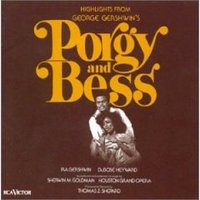I recently finished Pete Hamill’s 2003 work, Forever.
It’s a great novel. Pete Hamill is a master. Hamill ranks alongside Jimmy Breslin as great journalists of the generation which preceded mine. And Hamill is a better editor.
But it seemed to me, in reading the book, that a lot of great stuff was left out. The final product is 640 pages, and it jumps 125 years with barely an explanation. Yet there are hints, in its final section, of stories untold.
They were left out, edited out, because they didn’t fit the frame which was the book, the one that had to be sold.
There have been other such tragedies over the years. Gershwin wrote
Porgy & Bess as an opera, but it was only performed as a short
operetta during his lifetime, because musical theater was the frame he
was working in. When finally performed as an opera, in the mid-1970s,
it was seen to have been a classic. (And yet today, only the highlights of that performance are available.)
The point is that any frame has its limits, artificial limits imposed
by the medium. Hamill is a writer who has always obeyed the limits. He
was a masterful journalist who wrote within the medium of columns, and
stories, in papers that became birdcage liners the next day. Now he’s
limited by the frame of the book.
Books aren’t seen as a frame by their fans. They are seen as defining
the craft of writing. Since most of my best work has been published
online, I’m not seen as a writer, even by my own kids. This online
medium is not yet seen as legitimate.
That’s partly because we don’t know its borders, its frame. Blogging
itself is a frame. It’s limited, generally, to text, pictures and
objects, and the latter is a very new thing. Most of those who write
blogs work as though on a column, either in the Winchell style or, as in this blog, in the news column style Hamill worked in.
There is so much more this medium is, and can be, but few really good
writers have yet approached the medium, leaving it mainly to
programmers and amateurs. There is good reason for this. If you worked in older versions of this medium, as Douglas Adams did, you could lose time on what seemed like minutiae when what you wanted to do was just write. (I talked this over with Adams during an E3 show a few years before his untimely death.)
There are exceptions. Eric Flint has gotten enormous benefit from his 1632 site. Before him, Orson Scott Card got great benefit from his Hatrack River site. In addition to offering readers a chance to talk back, these are also fanfiction sites. Flint has transformed some of his own fan fiction into line extensions, publishing books on which he has actually done little work. These sites, too, are limited. Their primary output remains books.
Books define writers. Writers write books. Bloggers blog. Thus, to those who write books, bloggers aren’t writers. Yet I wrote this.
We can also go further.
The various New Yorks described in Pete Hamill’s Forever — the New
York of 1741, of 1776, of 1835, of 1878 — these are painted as virtual
worlds. I wonder what they would look like if transported to, say,
Second Life. Or into a video game, like Civilization. If the borders
and technologies of those imagined pasts were coded and loaded, how
might we be able to interact with them. How richer, and deeper, might
our understanding become, and how much more might Hamill make from them?
This is not a small point. People write books mainly because books
provide the only business model that long form fiction has. If your
work is optioned for a film (as the work of one character’s is in
Hamill’s book) it’s like winning the lottery. It’s not the point, you
immediately lose most of your control, you may just be taken for a
ride, but you go — it’s a personal adventure. And sometimes the movie
even gets made.
But as anyone whose book has been made into a movie will tell you, this
too is a frame, a frame defined by producers, directors, and stars.
Books are a frame. Movies are a frame. A video game or fan site is also
a frame.
Still, it’s a larger frame. It’s a new frame. It’s a different frame. And if blogging had better business models, this frame too would develop apace.
My point here is that the tyranny of a frame is a limiting factor on
all of us. The more valid frames we have, the more valid business
models, the more choices we have for either breaking loose of frames,
or of extending the stories we produce, sometimes in collaboration with
professionals, sometimes in collaboration with amateurs.
Literature is changing. The nature of framing is changing. Pete Hamill won’t be around for those changes.
I hope to be.















I agree with you about Pete Hammill. I read FOREVER and loved it although as a fan of Highlander and other such time epics it was familiar.
I lived in Manhattan during much of Hammill’s columnist career and read him religiously. In fact, when I was in Washington covering the Hill he came with Robert Redford to do research. Everyone else went to meet RR, me, I went to meet Mr. Hammill. So I’m with you.
The frame is another thing. The frame, whatever it is, provides a discipline to writing. New frames, in my opinion, emerge when the old frame doesn’t work anymore – and sometimes we can’t even tell they’ve mutated until they’ve been around for a while. The current blog “frame” has liberated me to write again after years working in TV. The freedom and the capacity to see one’s work immediately is a great encouragement to an otherwise-inhibited writer like me.
I found your blog while doing research and am so glad I did – it’s a great combination of topics and ideas.
I agree with you about Pete Hammill. I read FOREVER and loved it although as a fan of Highlander and other such time epics it was familiar.
I lived in Manhattan during much of Hammill’s columnist career and read him religiously. In fact, when I was in Washington covering the Hill he came with Robert Redford to do research. Everyone else went to meet RR, me, I went to meet Mr. Hammill. So I’m with you.
The frame is another thing. The frame, whatever it is, provides a discipline to writing. New frames, in my opinion, emerge when the old frame doesn’t work anymore – and sometimes we can’t even tell they’ve mutated until they’ve been around for a while. The current blog “frame” has liberated me to write again after years working in TV. The freedom and the capacity to see one’s work immediately is a great encouragement to an otherwise-inhibited writer like me.
I found your blog while doing research and am so glad I did – it’s a great combination of topics and ideas.
Wellbutrin.
Wellbutrin xl. Wellbutrin and weight loss. Wellbutrin bleeding. Wellbutrin and seizures. Wellbutrin. Lariam and wellbutrin.
Topamax side effects.
Topamax the good the bad and the ugly. When does topamax kick in eating disorder. Topamax off label uses. Topamax anxiety side effect.